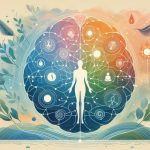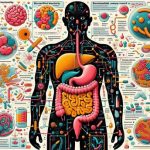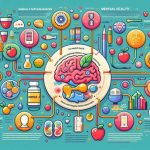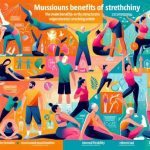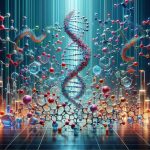- Using Meditation to Counteract Tech-Induced Anxiety, FoMO, and Attention Deficitsby ecareReading Time: 9 minutesIntroduction: The Algorithmic Erosion of Attention and the Rise of Digital Dysphoria The 21st century has witnessed the most rapid and profound rewiring of human attention in history. Our cognitive landscapes are now perpetually sculpted by digital technology—smartphones, social media platforms, and streaming services designed with one paramount goal: to […]
- Restorative Sleep: Using Mindfulness Practices to Treat Insomnia and Improve Sleep Architectureby ecareReading Time: 10 minutesIntroduction: The Silent Epidemic of Sleep Disruption and the Hyperaroused Mind Sleep, once a passive and inevitable nightly retreat, has become for millions a source of anxiety and frustration. Insomnia, characterized by persistent difficulty with sleep initiation, maintenance, or early morning awakening, is a pervasive public health concern, linked to […]
- Peak Performance Mindfulness: Applications in Athletics, the Arts, and Executive Leadershipby ecareReading Time: 10 minutesIntroduction The pursuit of excellence, whether on the athletic field, the concert stage, or in the corporate boardroom, represents a fundamental human drive to transcend ordinary limits and achieve peak performance. For decades, the primary focus of this pursuit has been on honing physical skills, technical mastery, and strategic intellect. […]
- Gut Feelings: Exploring the Emerging Link Between Mindfulness, Stress Reduction, and Gut Health (The Gut-Brain Axis).by ecareReading Time: 9 minutesIntroduction For centuries, colloquial language has hinted at a profound, intuitive connection between our emotions and our digestive system. We speak of having a “gut feeling,” feeling “butterflies” in the stomach when nervous, or experiencing a “gut-wrenching” event. These metaphors are now being validated by a revolutionary paradigm in modern […]
- Meditation and the Perception of Pain: Altering the Brain’s Relationship to Chronic Pain Signalsby ecareReading Time: 10 minutesIntroduction Chronic pain represents one of medicine’s most profound and complex challenges. Unlike acute pain, a vital alarm system signaling tissue damage, chronic pain persists long after healing should have occurred, evolving into a debilitating disease state of its own. It is a maladaptive process where the nervous system, through […]
- The Mind-Body Bridge: Meditation’s Measurable Impact on Blood Pressure, Heart Rate Variability, and Cardiovascular Healthby ecareReading Time: 10 minutesIntroduction For millennia, contemplative traditions have posited a profound and inseparable connection between the mind and the body, suggesting that the state of one directly influences the well-being of the other. In the modern era, this ancient wisdom is being rigorously validated by the empirical lens of science, particularly in […]
- Mindfulness for Burnout Prevention: Replenishing Cognitive and Emotional Resources in High-Stress Professionsby ecareReading Time: 10 minutesIntroduction: The Epidemic of Depletion in High-Stress Professions In the relentless pace of the modern professional landscape, burnout has transcended colloquial stress to become a defining occupational syndrome. Characterized by the World Health Organization as a state of “chronic workplace stress that has not been successfully managed,” burnout manifests as […]
- Calming the Flames: The Role of Meditation in Managing Chronic Inflammation and Autoimmune Conditionsby ecareReading Time: 11 minutesIntroduction In the intricate landscape of human health, inflammation serves as a double-edged sword. In its acute, localized form, it is a vital defense mechanism—a coordinated biological response to injury or infection, characterized by redness, heat, swelling, and pain, designed to eliminate harmful stimuli and initiate healing. However, when this […]
- The Attentional Muscle: How Meditation Trains Focus, Clarity, and Combats Cognitive Fragmentationby ecareReading Time: 10 minutesIntroduction: The Age of Cognitive Fragmentation and the Search for Coherence The defining condition of the modern mind is one of chronic distraction. We inhabit an information ecosystem meticulously engineered to capture and fracture our attention. Notifications ping, tabs multiply, and infinite streams of content compete for our cognitive resources, […]
- From Reactivity to Response: Building the Pause Between Stimulus and Reaction for Better Decision-Makingby ecareReading Time: 10 minutesIntroduction The human experience is often defined by a constant stream of stimuli and our subsequent reactions. A critical email triggers a spike of anger and a hastily composed, defensive reply. A challenging comment from a colleague sparks a wave of anxiety and a withdrawn, defeated posture. A tempting but […]
- First-Line Defense: Meditation as an Evidence-Based Tool for Anxiety and Depression Managementby ecareReading Time: 10 minutesIntroduction In the landscape of mental health, anxiety and depressive disorders represent a formidable and pervasive challenge, constituting a leading cause of global disability. While pharmacological interventions and structured psychotherapies like Cognitive Behavioral Therapy (CBT) remain cornerstone treatments, their limitations—including accessibility, cost, side effects, and variable patient response—have propelled the […]
- Cultivating Emotional Agility: Using Mindfulness to Navigate Difficult Emotions Without Being Overwhelmedby ecareReading Time: 11 minutesIntroduction In the relentless current of modern life, emotional turbulence is not a sign of malfunction but a feature of the human experience. We are wired to feel—joy, sorrow, fear, anger, disappointment—a vast spectrum of internal signals that provide crucial data about our world and our place within it. Yet, […]
- The Illuminated Burden: Screen Overuse and the Decline of Psychological Well-Beingby ecareReading Time: 8 minutesIntroduction We live in an age of perpetual illumination. From the first conscious moment to the final, drowsy glance before sleep, our lives are increasingly mediated by the glow of screens—smartphones, tablets, computers, and televisions. This constant connectivity promises a world of unlimited information, effortless social bridging, and boundless entertainment. […]
- Tech Overload and Its Effect on Children’s Behaviorby ecareReading Time: 9 minutesIntroduction The digital age has ushered in an unprecedented era of connectivity, information access, and technological innovation. For children, often dubbed “digital natives,” smartphones, tablets, laptops, and gaming consoles are not merely tools but integral, seamless components of their daily lives and developmental landscape. From educational apps and interactive e-books […]
- Fitness Trackers: Helpful or Harmful for Mental Health?by ecareReading Time: 14 minutesIntroduction The proliferation of wearable technology, particularly fitness trackers, represents one of the most significant intersections of health, behavior, and digital technology in the modern era. These devices, which range from basic step counters to sophisticated smartwatches monitoring heart rate variability, sleep architecture, and blood oxygen levels, have embedded themselves […]
- Digital Disconnect: How Technology Weakens Real-Life Social Skillsby ecareReading Time: 8 minutesIntroduction We live in an era of profound technological entanglement. The digital revolution, heralded for its power to connect, has woven itself into the very fabric of human interaction. Platforms promise global villages, instant communication, and boundless community. Yet, a growing paradox emerges from within this hyper-connected landscape: a palpable […]
- The Neuroscience of Stillness: How Meditation Physically Reshapes the Brain (Neuroplasticity, Amygdala, Prefrontal Cortex)by ecareReading Time: 9 minutesIntroduction For centuries, meditation was the purview of monasteries and spiritual seekers, described in the language of philosophy, mysticism, and subjective experience. Its benefits—calm, clarity, insight—were considered intangible gifts of a disciplined mind. The late 20th and early 21st centuries, however, have witnessed a profound paradigm shift. With the advent […]
- The Default Mode Network and the Self: How Meditation Quiets the “Monkey Mind” and Reduces Ruminationby ecareReading Time: 8 minutesIntroduction For millennia, contemplative traditions have spoken of a restless, chattering mind—a “monkey mind” that swings from branch to branch of memory, fantasy, and worry, rarely finding peace in the present moment. This ubiquitous human experience of involuntary and often distressing self-referential thought, known today as rumination, is not merely […]
- Defining Mindfulness: A Practical Framework for Mental Training, Differentiating it from Mere Relaxation or Religionby ecareReading Time: 8 minutesIntroduction In an era defined by distraction, fragmentation, and unprecedented mental strain, the term “mindfulness” has surged into the cultural lexicon. It is promoted in corporate boardrooms, school curricula, clinical therapy offices, and wellness apps, heralded as a panacea for everything from stress and anxiety to poor focus and low […]
- Beyond Relaxation: Meditation as a Biological Intervention for the Stress-Response System (HPA Axis, Cortisol, and Inflammation)by ecareReading Time: 9 minutesIntroduction In the popular imagination, meditation is often relegated to the realm of relaxation—a pleasant mental vacation for reducing daily tension. This characterization, while not entirely inaccurate, is a profound and consequential undersell. It frames meditation as a soft skill, a lifestyle accessory for the already-well, rather than what a […]
- The Rise of Tech-Induced Stress (Techno-Stress)by ecareReading Time: 10 minutesThe 21st century has been defined by a technological revolution that has fundamentally reshaped the fabric of human existence. From the smartphone in our pocket to the cloud servers processing our data, digital tools have woven themselves into the very core of our professional, personal, and social lives. This integration […]
- Telehealth Reliance and Self-Diagnosis: Risks to Personal Healthby ecareReading Time: 8 minutesIntroduction The rapid advancement and adoption of digital technology have fundamentally transformed the landscape of healthcare delivery and health information-seeking behavior. Two interrelated phenomena sit at the forefront of this transformation: the rise of telehealth and the proliferation of self-diagnosis, primarily facilitated by online symptom checkers and search engines. Telehealth, […]
- Impact of Technology on Healthy Eating Habitsby ecareReading Time: 8 minutesIntroduction The relationship between technology and human nutrition represents one of the most profound and paradoxical shifts of the modern era. The very fabric of how we acquire, prepare, consume, and think about food has been rewired by digital innovation. Technology’s impact on eating habits is omnipresent, dualistic, and accelerating, […]
- How Blue Light Affects Brain Function and Emotional Healthby ecareReading Time: 10 minutesWe live in an age of perpetual illumination. As the natural sun sets, a new, artificial day dawns from the glowing screens of smartphones, tablets, computers, and energy-efficient LED lighting that dominates our homes and cities. This modern luminous environment has fundamentally altered humanity’s age-old relationship with light and dark, […]
- Yoga, Meditation, and Longevity: How They Work Togetherby ecareReading Time: 9 minutesIntroduction The pursuit of longevity has evolved from a mythical quest for a fountain of youth to a sophisticated scientific exploration of the biological, psychological, and social determinants of a long and healthy life. In this modern inquiry, the ancient sister practices of yoga and meditation have emerged not as […]
- Heart Health and Meditation: Lowering Blood Pressure Naturallyby ecareReading Time: 10 minutesIntroduction Cardiovascular disease remains the leading cause of death globally, with hypertension, or high blood pressure, serving as one of its most pervasive and pernicious risk factors. Often termed the “silent killer” due to its asymptomatic nature, chronic high blood pressure inflicts gradual damage on arterial walls, straining the heart, […]
- Emotional Detox Through Meditation and Breathworkby ecareReading Time: 11 minutesIntroduction In the relentless pace of modern life, emotional accumulation is an often-overlooked phenomenon with profound implications for mental and physical health. Just as the body accrues metabolic waste and environmental toxins, the psyche can accumulate unresolved emotional experiences—stress, grief, anger, anxiety, and trauma—that are not fully processed or released. […]
- Building a Balanced Lifestyle Through Mindfulness-Based Practicesby ecareReading Time: 12 minutesThe pursuit of a balanced lifestyle is a modern preoccupation that sits at the heart of our collective longing for well-being. In a world of relentless demands—professional deadlines, digital notifications, social obligations, and an ever-present undercurrent of global uncertainty—the feeling of being perpetually off-kilter has become a common ailment. We […]
- The Mind–Body Connection: How Meditation Improves Digestion, Sleep, and Energyby ecareReading Time: 10 minutesIntroduction For centuries, the philosophy of holistic health has posited an intrinsic, inseparable link between the mind and the body, yet only in recent decades has Western science begun to map the precise biological pathways that validate this ancient wisdom. We have moved beyond the conceptual to the empirical, discovering […]
- Mind Reading vs. Mindfulness: Understanding Your Own Mind Firstby ecareReading Time: 15 minutesThe allure of knowing what others think is a powerful and ancient one. From oracles and seers to modern-day mentalists and the tantalizing promise of neuromarketing, the fantasy of “mind reading” speaks to a deep human desire to transcend the barriers of the skull, to secure social advantage, to avoid […]
- Meditation for Boosting Immunity: What Research Saysby ecareReading Time: 10 minutesIntroduction In an era where the pursuit of optimal health has become a central focus, the intricate link between the mind and the body has emerged as a critical area of scientific inquiry. Once considered a purely spiritual or relaxation practice, meditation has increasingly come under the scrutiny of rigorous […]
- Meditation for Athletes: Enhancing Performance and Recoveryby ecareReading Time: 13 minutesThe modern athlete exists at the intersection of extraordinary physical capability and immense psychological pressure. Training regimens are scientifically optimized, nutrition is meticulously calibrated, and technology provides granular data on every stride, stroke, and heartbeat. Yet, for all this external precision, a critical component of peak performance has often been […]
- Using Mentalist Techniques to Break Negative Thought Patternsby ecareReading Time: 9 minutesIntroduction The human mind is a formidable instrument, capable of extraordinary creativity, problem-solving, and emotional depth. Yet, this same instrument can become its own warden, trapping individuals in cycles of negative thought patterns—persistent, automatic, and distorted cognitive loops that fuel anxiety, depression, and chronic stress. These patterns, often formed from […]
- The Unseen Lens: How Mentalist Techniques Cultivate Everyday Mental Clarityby ecareReading Time: 16 minutesIn the captivating world of mentalism, performers create the illusion of mind-reading, clairvoyance, and preternatural insight. Audiences are left bewildered as a mentalist seemingly deduces a stranger’s PIN, reveals a deeply personal memory, or predicts a choice made freely moments before. The magic, however, lies not in supernatural ability, but […]
- Cognitive Illusions and Reality: What Mentalism Teaches Us About the Mindby ecareReading Time: 9 minutesIntroduction The fundamental assumption of our daily existence is that we perceive the world as it truly is, that our senses are reliable windows to reality, and that our minds are impartial processors of objective truth. This assumption, however, is a profound and necessary illusion. Our cognitive experience is not […]
- The Power of Suggestion: How Thoughts Influence Stress and Well-Beingby ecareReading Time: 10 minutesIntroduction The human mind is not a passive recorder of reality but an active constructor of it. While we perceive the world as objective and external, our internal landscape—our thoughts, beliefs, and expectations—exerts a profound and often underestimated influence on our physiological and psychological states. This is the domain of […]
- UNDERSTANDING GUT HEALTH AND IMMUNITYby ecareReading Time: 12 minutesIntroduction: The Unseen Fortress Within For much of modern medical history, the human gut was viewed in a relatively simplistic light: a tubular organ system responsible for the mechanical and chemical breakdown of food, the absorption of nutrients, and the expulsion of waste. Its connection to health was largely framed […]
- HOW NUTRITION AFFECTS MENTAL HEALTHby ecareReading Time: 12 minutesIntroduction: The Gut-Brain Axis – A Paradigm Shift in Mental Health For centuries, the brain was viewed as a privileged, almost isolated organ, with its functioning and ailments considered largely separate from the rest of the body. Mental health conditions like depression, anxiety, and cognitive decline were approached primarily through […]
- Benefits of Stretching Dailyby ecareReading Time: 13 minutesIntroduction In a world where movement is often limited to the minimal tasks required to get through each day, stretching emerges as one of the simplest yet most powerful tools for enhancing overall well-being. Daily stretching offers a unique blend of physical, mental, and emotional benefits that support long-term health […]
- EASY HOME WORKOUTS FOR BUSY PEOPLEby ecareReading Time: 15 minutesIntroduction: Redefining Fitness for the Time-Poor Individual The aspiration to be fit and healthy is almost universal, yet for a vast number of busy people, it remains perpetually out of reach, languishing at the bottom of an endless to-do list. The conventional image of fitness—hour-long gym sessions, complex equipment, and […]
- THE SCIENCE OF POSITIVE THINKINGby ecareReading Time: 14 minutesIntroduction: Beyond Wishful Thinking The concept of positive thinking has long been nestled in the realms of self-help and popular psychology, often evoking images of unwavering optimism, the constant repetition of affirmations in the mirror, or the simple admonition to “look on the bright side.” For many, this superficial understanding […]
- Overcoming Burnout in a Fast-Paced Worldby ecareReading Time: 13 minutesIntroduction Burnout has become one of the defining health challenges of the modern era, emerging as a widespread psychological, emotional, and physical exhaustion resulting from prolonged stress. In today’s fast-paced world, many individuals feel overwhelmed by the demands placed on them from work, family, relationships, and personal expectations. The rapid […]
- Emotional Detox: Letting Go of Negative Energyby ecareReading Time: 13 minutesIntroduction In the fast-paced, pressure-filled modern world, emotional detox has become an essential practice for maintaining mental clarity, emotional balance, and inner peace. Just as the physical body accumulates toxins from food, pollution, and daily habits, the emotional body also collects its own form of “toxins” in the form of […]
- BUILDING RESILIENCE DURING TOUGH TIMESby ecareReading Time: 12 minutesIntroduction: The Unseen Foundation of Survival and Growth Resilience is often misunderstood as an innate, unshakeable toughness possessed by a fortunate few, a kind of emotional armor that allows them to breeze through life’s difficulties unscathed. This perception is not only inaccurate but also profoundly disempowering. In reality, resilience is […]
- Why Writing Heals: Journaling as a Stress-Reduction Toolby ecareReading Time: 13 minutesIntroduction Journaling is one of the most widely used and accessible tools for emotional regulation, self-reflection, and stress management. Across centuries and cultures, humans have turned to writing as a means of expressing their inner world, making sense of difficult experiences, and coping with the psychological burdens of daily life. […]
- The Digital Deluge: An Introduction to Our Screen-Saturated Existenceby ecareReading Time: 20 minutesWe live in an era of unprecedented connectivity, a world rendered instantly accessible through the glowing rectangles that dominate our desks, fill our pockets, and adorn our walls. From the moment the alarm on a smartphone jolts us awake to the final, weary scroll through social media before sleep, our […]
- Hydration and Its Impact on Mood and Energyby ecareReading Time: 12 minutesIntroduction Hydration is one of the simplest yet most powerful factors influencing human health, mood stability, and day-to-day energy levels. While most people understand that water is essential for survival, the deeper psychological and physiological effects of hydration often go unnoticed. Every chemical reaction in the body occurs in a […]
- An Introduction to the Present Moment: Why Mindfulness Matters Nowby ecareReading Time: 19 minutesIn the relentless rush of modern life, our minds are often everywhere but here. We eat breakfast while scrolling through news feeds, commute while planning our day, and sit in meetings while worrying about the future or ruminating on the past. This state of constant mental time travel, of being […]
- THE IMPORTANCE OF SLEEP AND HOW TO IMPROVE ITby ecareReading Time: 14 minutesIntroduction Sleep is one of the most fundamental biological needs of the human body, yet it remains one of the most neglected components of modern life. In a world shaped by long working hours, constant digital stimulation, multitasking, and the pressure to stay productive, many individuals view sleep as a […]
- SIMPLE MORNING ROUTINES FOR MENTAL CLARITYby ecareReading Time: 17 minutesIntroduction: The Dawn of a Clearer Mind In the hushed, potential-filled hours of the morning, the blueprint for your day is drawn. How you choose to spend the first moments after waking can be the defining factor between a day of scattered reactivity and one of focused, calm intentionality. Mental […]
- HOW TO BUILD HEALTHIER BOUNDARIES IN LIFEby ecareReading Time: 17 minutesIntroduction Building healthier boundaries in life is one of the most transformative skills a person can develop, yet it is often misunderstood, overlooked, or viewed negatively. Many people grow up believing that setting boundaries is selfish, rude, unnecessary, or a sign of weakness, when in fact, boundaries are the foundation […]
- DAILY HABITS FOR A HEALTHIER MIND AND BODYby ecareReading Time: 19 minutesIntroduction: The Architecture of a Healthier Life In the relentless pace of modern life, the pursuit of health can often feel like a distant, complex goal—a summit to be reached only through drastic, unsustainable measures. We envision rigorous six-day-a-week gym routines, Spartan diets, and digital detoxes that feel more like […]
- MANAGING SCREEN ADDICTIONby ecareReading Time: 19 minutesIntroduction: The Unseen Chains of the Digital Age We live in an era of unprecedented connectivity, where the sum of human knowledge and social interaction rests in our pockets. The smartphone, the tablet, the laptop—these devices have revolutionized work, education, and leisure, collapsing geographical barriers and creating new forms of […]
- HOW SOCIAL MEDIA AFFECTS SELF-ESTEEMby ecareReading Time: 21 minutesIntroduction: The Digital Mirror In the pre-digital age, self-esteem—the overall subjective evaluation of one’s own worth—was shaped by a relatively contained ecosystem of influences: family, a circle of friends, school, local community, and traditional media like magazines and television. While these forces were powerful, they were also finite. One could, […]
- DIGITAL MINIMALISM: LIVING WITH LESS TECHNOLOGYby ecareReading Time: 14 minutesIntroduction We live in an age of digital saturation. From the moment our smartphone alarms jolt us awake to the final, weary scroll through social media in bed, our lives are increasingly mediated by a relentless stream of notifications, emails, and endless feeds. This constant connectivity, once hailed as the […]
- CREATING A HEALTHY ONLINE–OFFLINE BALANCEby ecareReading Time: 17 minutesIntroduction We live in an era of unprecedented connection, where the digital world offers a boundless landscape of information, communication, and entertainment. With a device in our pocket more powerful than the computers that guided astronauts to the moon, we can video call with someone across the globe, access the […]
- PRODUCTIVITY WITHOUT BURNOUTby ecareReading Time: 17 minutesIntroduction In the contemporary landscape of high-speed commerce, relentless technological advancement, and a culture that often glorifies “hustle” as a virtue, the pursuit of productivity has become a central tenet of both professional and personal life. We are inundated with methodologies, applications, and philosophies promising to unlock unprecedented levels of […]
- IMPORTANCE OF MENTAL HEALTH DAYSby ecareReading Time: 16 minutesIntroduction In the contemporary landscape of work and life, where the boundaries between professional and personal spheres have become increasingly blurred and the pressure to perform is perpetually high, the concept of the mental health day has emerged from the shadows of stigma to become a critical component of holistic […]
- How to Maintain Work–Life Balanceby ecareReading Time: 11 minutesIntroduction Maintaining work–life balance has become one of the most important goals in modern life, especially as professional responsibilities continue to expand and personal expectations evolve in a fast-paced world. Work demands have increased, technology has blurred boundaries between office and home, and social pressures often encourage people to stay […]
- Desk Exercises for Office Workersby ecareReading Time: 12 minutesIntroduction Desk exercises for office workers have become increasingly important in a world where the majority of professional roles demand prolonged sitting, extended screen time, and repetitive motions that gradually strain the body. The modern office, whether in a traditional corporate environment or a home-based workspace, often encourages sedentary behavior […]
- REDUCING STRESS AT WORKby ecareReading Time: 11 minutesINTRODUCTION Work-related stress has become one of the most pervasive challenges in modern professional life. As organizations grow more competitive, expectations rise, deadlines tighten, and responsibilities expand, individuals often find themselves navigating complex emotional, cognitive, and physical demands. The workplace, once regarded primarily as a space for productivity and collaboration, […]
- Power of Breathwork for Emotional Balanceby ecareReading Time: 11 minutesIntroduction Breathwork has become increasingly recognized as one of the most accessible yet powerful tools for emotional balance, mental clarity, and inner calm. At its core, breathwork emphasizes conscious and intentional breathing techniques that influence the body’s physiology, brain activity, and emotional regulation systems. Despite being a simple and innate […]
- HEALING BENEFITS OF GRATITUDEby ecareReading Time: 16 minutesIntroduction: Beyond Politeness – Gratitude as a Catalyst for Transformation Gratitude is often relegated to the realm of social etiquette, a polite “thank you” offered reflexively in response to a kindness. However, a profound and growing body of scientific research reveals that gratitude is far more than a mere social […]
- AROMATHERAPY FOR STRESS RELIEFby ecareReading Time: 16 minutesIntroduction: The Invisible Embrace – An Ancient Answer to a Modern Problem In the relentless pace of the modern world, stress has become a ubiquitous and often debilitating constant. It permeates our lives, manifesting as mental fog, emotional exhaustion, muscular tension, and a pervasive sense of being overwhelmed. While the […]
- MIND–BODY CONNECTION EXPLAINEDby ecareReading Time: 18 minutesIntroduction: The Illusory Divide and the Emergence of a New Paradigm For centuries, Western thought has been dominated by a Cartesian dualism, a concept famously articulated by the philosopher René Descartes, which posits a fundamental separation between the mind—an immaterial, thinking substance—and the body—a physical, mechanical machine. This division has […]
- Importance of Regular Medical Checkupsby ecareReading Time: 12 minutesIntroduction Regular medical checkups stand as one of the most essential pillars of lifelong health, even though many individuals tend to overlook them due to busy schedules, fear of hospitals, or the assumption that feeling healthy means being healthy. In a world where chronic diseases are on the rise, lifestyles […]
- How Nature Therapy Improves Mental Healthby ecareReading Time: 12 minutesIntroduction Nature therapy, often called ecotherapy, has emerged as one of the most effective and accessible approaches for improving mental health in a world increasingly dominated by technology, noise, and fast-paced lifestyles. As modern life distances people from natural environments, emotional imbalances, stress, anxiety, and burnout have become more prevalent. […]
- HEALTHY EATING ON A BUDGETby ecareReading Time: 20 minutesIntroduction: Nourishing Your Body and Your Wallet The pursuit of a healthy lifestyle is often perceived as a luxury, an expensive endeavor reserved for those with ample disposable income. This perception is fueled by glossy magazine spreads featuring exotic “superfoods,” premium-priced organic produce, and trendy supplements that promise optimal wellness. […]
- UNDERSTANDING GUT HEALTH AND IMMUNITYby ecareReading Time: 12 minutesIntroduction: The Unseen Fortress Within For much of modern medical history, the human gut was viewed in a relatively simplistic light: a tubular organ system responsible for the mechanical and chemical breakdown of food, the absorption of nutrients, and the expulsion of waste. Its connection to health was largely framed […]
- HOW NUTRITION AFFECTS MENTAL HEALTHby ecareReading Time: 12 minutesIntroduction: The Gut-Brain Axis – A Paradigm Shift in Mental Health For centuries, the brain was viewed as a privileged, almost isolated organ, with its functioning and ailments considered largely separate from the rest of the body. Mental health conditions like depression, anxiety, and cognitive decline were approached primarily through […]
- Benefits of Stretching Dailyby ecareReading Time: 13 minutesIntroduction In a world where movement is often limited to the minimal tasks required to get through each day, stretching emerges as one of the simplest yet most powerful tools for enhancing overall well-being. Daily stretching offers a unique blend of physical, mental, and emotional benefits that support long-term health […]
- EASY HOME WORKOUTS FOR BUSY PEOPLEby ecareReading Time: 15 minutesIntroduction: Redefining Fitness for the Time-Poor Individual The aspiration to be fit and healthy is almost universal, yet for a vast number of busy people, it remains perpetually out of reach, languishing at the bottom of an endless to-do list. The conventional image of fitness—hour-long gym sessions, complex equipment, and […]
- THE SCIENCE OF POSITIVE THINKINGby ecareReading Time: 14 minutesIntroduction: Beyond Wishful Thinking The concept of positive thinking has long been nestled in the realms of self-help and popular psychology, often evoking images of unwavering optimism, the constant repetition of affirmations in the mirror, or the simple admonition to “look on the bright side.” For many, this superficial understanding […]
- Overcoming Burnout in a Fast-Paced Worldby ecareReading Time: 13 minutesIntroduction Burnout has become one of the defining health challenges of the modern era, emerging as a widespread psychological, emotional, and physical exhaustion resulting from prolonged stress. In today’s fast-paced world, many individuals feel overwhelmed by the demands placed on them from work, family, relationships, and personal expectations. The rapid […]
- Emotional Detox: Letting Go of Negative Energyby ecareReading Time: 13 minutesIntroduction In the fast-paced, pressure-filled modern world, emotional detox has become an essential practice for maintaining mental clarity, emotional balance, and inner peace. Just as the physical body accumulates toxins from food, pollution, and daily habits, the emotional body also collects its own form of “toxins” in the form of […]
- BUILDING RESILIENCE DURING TOUGH TIMESby ecareReading Time: 12 minutesIntroduction: The Unseen Foundation of Survival and Growth Resilience is often misunderstood as an innate, unshakeable toughness possessed by a fortunate few, a kind of emotional armor that allows them to breeze through life’s difficulties unscathed. This perception is not only inaccurate but also profoundly disempowering. In reality, resilience is […]
- Why Writing Heals: Journaling as a Stress-Reduction Toolby ecareReading Time: 13 minutesIntroduction Journaling is one of the most widely used and accessible tools for emotional regulation, self-reflection, and stress management. Across centuries and cultures, humans have turned to writing as a means of expressing their inner world, making sense of difficult experiences, and coping with the psychological burdens of daily life. […]
- The Digital Deluge: An Introduction to Our Screen-Saturated Existenceby ecareReading Time: 20 minutesWe live in an era of unprecedented connectivity, a world rendered instantly accessible through the glowing rectangles that dominate our desks, fill our pockets, and adorn our walls. From the moment the alarm on a smartphone jolts us awake to the final, weary scroll through social media before sleep, our […]
- Hydration and Its Impact on Mood and Energyby ecareReading Time: 12 minutesIntroduction Hydration is one of the simplest yet most powerful factors influencing human health, mood stability, and day-to-day energy levels. While most people understand that water is essential for survival, the deeper psychological and physiological effects of hydration often go unnoticed. Every chemical reaction in the body occurs in a […]
- An Introduction to the Present Moment: Why Mindfulness Matters Nowby ecareReading Time: 19 minutesIn the relentless rush of modern life, our minds are often everywhere but here. We eat breakfast while scrolling through news feeds, commute while planning our day, and sit in meetings while worrying about the future or ruminating on the past. This state of constant mental time travel, of being […]
- THE IMPORTANCE OF SLEEP AND HOW TO IMPROVE ITby ecareReading Time: 14 minutesIntroduction Sleep is one of the most fundamental biological needs of the human body, yet it remains one of the most neglected components of modern life. In a world shaped by long working hours, constant digital stimulation, multitasking, and the pressure to stay productive, many individuals view sleep as a […]
- SIMPLE MORNING ROUTINES FOR MENTAL CLARITYby ecareReading Time: 17 minutesIntroduction: The Dawn of a Clearer Mind In the hushed, potential-filled hours of the morning, the blueprint for your day is drawn. How you choose to spend the first moments after waking can be the defining factor between a day of scattered reactivity and one of focused, calm intentionality. Mental […]
- HOW TO BUILD HEALTHIER BOUNDARIES IN LIFEby ecareReading Time: 17 minutesIntroduction Building healthier boundaries in life is one of the most transformative skills a person can develop, yet it is often misunderstood, overlooked, or viewed negatively. Many people grow up believing that setting boundaries is selfish, rude, unnecessary, or a sign of weakness, when in fact, boundaries are the foundation […]
- DAILY HABITS FOR A HEALTHIER MIND AND BODYby ecareReading Time: 19 minutesIntroduction: The Architecture of a Healthier Life In the relentless pace of modern life, the pursuit of health can often feel like a distant, complex goal—a summit to be reached only through drastic, unsustainable measures. We envision rigorous six-day-a-week gym routines, Spartan diets, and digital detoxes that feel more like […]
- Men’s Skin Is Not the Same: Formulas, Beards & Hormonal Differencesby Summiyah MahmoodReading Time: 7 minutesHistorically, skincare has been overwhelmingly marketed toward women, often relegating men’s skin concerns to a secondary or simplified status. This approach has long overlooked the fundamental biological distinctions that set male skin apart, resulting in a market filled with generalized products that may not adequately address men’s unique needs. In […]
- Beauty Equity: Skincare Needs for Deeper Skin Tonesby Summiyah MahmoodReading Time: 7 minutesIn recent years, the beauty industry has made strides toward inclusivity, yet skincare formulations and research have historically prioritized lighter skin tones. This neglect is not just cosmetic—it has profound implications for skin health, dermatological outcomes, and social equity. Deeper skin tones, often classified as Fitzpatrick types IV–VI, present unique […]
- Sunscreen Safety: Coral-Safe Filters & SPF Innovationsby Summiyah MahmoodReading Time: 8 minutesFor decades, sunscreen has been celebrated as the ultimate guardian against photo aging, hyper pigmentation, and the ever-present threat of skin cancer. Ultraviolet (UV) radiation remains one of the most significant and preventable contributors to premature aging and carcinogenesis, making sunscreen an indispensable element of daily skincare. Dermatologists have long […]
- Vegan Collagen: Can Plants Truly Support Skin Structureby Summiyah MahmoodReading Time: 7 minutesFor decades, collagen has been synonymous with youthful skin, joint mobility, and structural integrity. Yet, collagen itself is an animal-derived protein, extracted from bovine hides, fish scales, or chicken sternum. This presents a paradox for those following plant-based or vegan lifestyles: how cans one support collagen synthesis without consuming collagen […]
- Eco-Packaging Innovation: Bioplastics, up cycling & Zero Waste Beautyby Summiyah MahmoodReading Time: 7 minutesFor decades, beauty has been defined by surface aesthetics — glossy finishes, intricate shapes, metallic foils, and the tactile allure of packaging that promised prestige. Yet beneath that shimmer lays a hidden cost: mountains of waste, micro plastic pollution, and energy-intensive manufacturing systems that strain ecosystems. As global awareness of […]
- Fungal Acne vs. Bacterial Acne: How to Diagnose & Treat at Homeby Summiyah MahmoodReading Time: 8 minutesNot every pimple is created equal. While many people assume all breakouts are the same, the truth is more complex. The term “acne” often refers to bacterial acne, the classic Acne vulgarism caused by Cut bacterium acnes. However, a growing number of individuals suffer from another type of eruption — […]
- Collagen Banking in Your 20s: The Most Important Preventive Strategyby Summiyah MahmoodReading Time: 8 minutesIn your twenties, collagen seems infinite. The skin bounces back after late nights, dehydration, or a skipped sunscreen application. But beneath the surface, subtle biochemical changes have already begun. The fibroblasts—the specialized cells that produce collagen, elastic, and hyaluronic acid—are at their metabolic peak. Yet by the mid-to-late twenties, their […]
- Hall Beauty: Ethical Formulations & the Rising Global Marketby Summiyah MahmoodReading Time: 8 minutesThe global beauty industry has entered a new ethical and cultural renaissance — one that intertwines faith, purity, sustainability, and transparency. Amid this evolution, Hall beauty has emerged not merely as a religious category but as a comprehensive ethical movement redefining consumer values, corporate responsibility, and formulation science. “Hall” in […]
- Facial Fascia: The Hidden Structure behind Sagging & Sculptingby Summiyah MahmoodReading Time: 8 minutesThe face is not simply a canvas — it is a living architecture of tension, fluid, and form. Beneath the visible features lies an intricate, intelligent web known as the facial fascia — a fibrous, collagen-rich network that integrates skin, muscle, and bone into a dynamic system of support and […]
- Pro-Aging: A New Philosophy of Grace, Confidence & Skin Authenticityby Summiyah MahmoodReading Time: 9 minutesFor decades, the beauty industry has been dominated by a single narrative: to fight, reverse, or erase aging. Wrinkles were labeled as flaws, gray hair as decline, and mature skin as something to be corrected. Yet a quiet revolution is unfolding — one that no longer frames aging as an […]
- Beauty Fats: Omega Balance for Radiance, Elasticity & Inflammation Controlby Summiyah MahmoodReading Time: 7 minutesThe skin is not merely a reflection of what we apply to its surface — it is a living lipid landscape, a biological canvas painted daily by the fats we consume, metabolize, and store. Every membrane, every sebaceous gland, and every barrier function depends on the integrity and balance of […]
- Sugar & Skin: Gyration, Wrinkles & the Case against Excess Glucoseby Summiyah MahmoodReading Time: 7 minutesThe human body thrives on balance, and nowhere is this more evident than in the relationship between sugar and skin. Glucose fuels every cell, powers collagen synthesis, and sustains energy for repair—but in excess, it becomes corrosive. Over the past two decades, dermatological science has revealed a profound biochemical truth: […]
- Ancient Wisdom: Traditional Beauty Rituals from Indigenous Culturesby Summiyah MahmoodReading Time: 7 minutesLong before laboratories and luxury skincare, beauty was born from observation—of nature, of rhythm, of reciprocity. In indigenous cultures, skincare was never separate from spirituality or ecology. To adorn the body was to honor the earth; to anoint the skin was to participate in a cycle of respect between human […]
- Histamine Intolerance & the Mystery of Flushed, Reactive Skinby Summiyah MahmoodReading Time: 7 minutesSome people’s skin seems to speak louder than others — turning red after a glass of wine, breaking out after aged cheese, or itching for no obvious reason. What seems like “sensitive skin” may, in fact, be something deeper: a biochemical conversation gone awry. Histamine intolerance sits at the crossroads […]
- Stem Cell & Exosmic Research: Hope vs. Hype in Regenerative Beautyby Summiyah MahmoodReading Time: 7 minutesThe beauty and dermatology industries have always been driven by a singular question: Can we truly reverse the signs of aging, not just disguise them? For decades, formulations have focused on symptom management — smoothing wrinkles, tightening skin, and camouflaging imperfections. Yet beneath the surface lies a deeper cellular story: […]
- Peptide Revolution: Copper Tripeptide-1, Matrix & Next-Gen Moleculesby Summiyah MahmoodReading Time: 8 minutesIn the last decade, dermatological science has entered what many experts describe as a “molecular renaissance.” Skincare has evolved from an external pursuit of softness and sheen to an internal dialogue between biology and biochemistry. The cosmetic industry—once reliant on emollients, occlusive’s, and exfoliates—now centers its innovation on bioactive peptides, […]
Reading Time: < 1 minute





























































